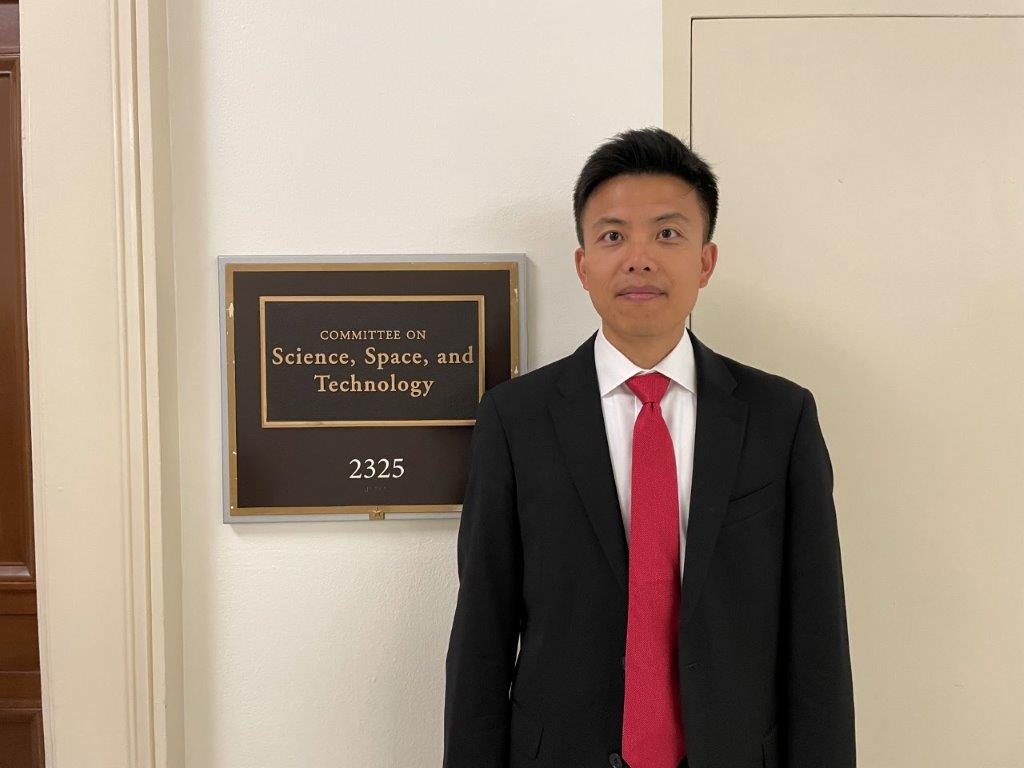Imagine a small unmanned aircraft delivering your next meal or prescription refill to your house or an autonomous air taxi taking you from JFK airport to Manhattan in New York City. It turns out that the arrival of these technologies is closer than you might think. Peng Wei, an associate professor of mechanical and aerospace engineering, is the lead on a project to guard these autonomous aircraft flying in high-density urban airspaces against cyberattacks, funded by NASA’s University Leadership Initiative (ULI). During a presentation on Capitol Hill on July 23, Wei highlighted the critical need for artificial intelligence (AI) safety and cybersecurity in aviation and introduced the multi-institutional research team working on these challenges.
In his presentation, Wei explained to members of the U.S. House Committee on Science, Space, and Technology why AI safety and cybersecurity are pressing concerns for the U.S. aviation industry, particularly in the era of autonomous aircraft operations in advanced air mobility. Wei noted that interesting questions were raised by attendees, including what will be the role of the human pilot or air traffic controller in aviation’s AI age?, how can humans be part of the security mechanism to protect the aircraft and airspace?, and How will technology in aviation impact workforce training and jobs?
Wei introduced the GW-led NASA ULI team members and how they’re collaborating to address the technical challenges of AI safety and cybersecurity for aviation systems. The project’s scope encompasses pivotal areas such as research, aeronautics, and aviation, attracting the attention of the House Science Committee subcommittees on space and aeronautics, research and technology, and aviation.
This comprehensive research effort is not only a focal point for those subcommittees but is also of interest to the subcommittee on higher education and workforce development. It will serve as a training ground for mechanical and aerospace engineering undergraduate and graduate students to become familiar with cybersecurity and AI. By nurturing this talent, the initiative aims to cultivate a highly skilled workforce within these domains.
Regarding the project’s effects on national security policies related to autonomous aircraft, Wei stated, “This project will develop and demonstrate technologies to secure the future U.S. urban airspace where AI-powered autonomous aircraft fly, which is key to our national security.”
The research team will host a kick-off meeting at GW in the School of Engineering’s Science and Engineering Hall in October to bring together all team members, NASA researchers, and program directors. This event will also include key stakeholders and industry advisors, emphasizing the collaborative nature of this initiative. With a duration of three years, the project is poised to make significant strides in enhancing AI safety and cybersecurity for autonomous aircraft.


